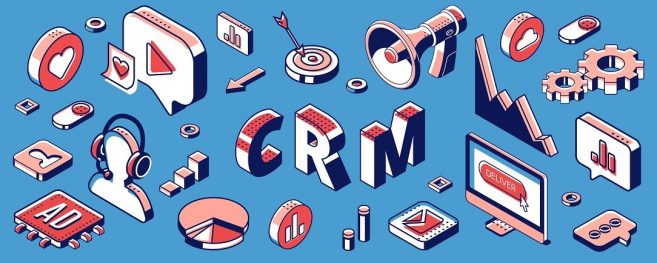5 Benefits A Crm In The Healthcare Industry Can Provide

What is a healthcare CRM?
A healthcare customer relationship management (CRM) system is an invaluable tool to maintain up-to-date information about patients, offer quality support, gather valuable insights, and provide efficient customer management processes.
The Benefits of Having a CRM in the Healthcare Industry
1. Reports, Metrics, and Dashboards
A CRM stores data on patients in a communications module so that it is readily available to employees throughout the healthcare system to schedule and track patient appointments and interactions.
Many doctor’s practices, clinics, and hospitals have set up an online medical portal to make new patient check-in and record updates for existing patients less time consuming for staff.
The patient management module of the CRM enables staff to add or update patient records, , and access medical histories of patients to provide better care.
The reporting module of the CRM can be designed to segment the patient population to analyze and then understand them better. Additionally it can calculate specific metrics such as patient retention rate, length of stay etc. Reports can be generated by metric or customized information to track and measure progress over time.
2. Mailing and Marketing Campaigns
Knowing who patients are, what they need, and what they are looking for allows healthcare establishments to improve their services and quality of care, and build strong relationships with their patients. A healthcare CRM can track patient satisfaction and the patient’s likelihood of referring others to the healthcare establishment. Such data provides valuable feedback to healthcare executives to make data-driven decisions.
The CRM allows you to filter your contacts to get a targeted list of patients or prospective patients who would most likely be interested in upcoming special offers or new services or products.
3. Integration with Existing Software
Your new healthcare CRM must provide EMR integration and work seamlessly with your practice’s current applications.
4. Availability on Multiple platforms
CRM software is one of the most popular types of software for business and healthcare practices. Approximately 50 % of users access CRM software from a smartphone, a cloud-based platform, or a tablet.
5. Customer Management Processes
There are a considerable number of daily tasks that must be completed for internal processes to function correctly. Filing out forms, reporting, compliance with regulations, appointments, patient notes by doctors and nurses, medications prescribed and on hand, etc. All of these tasks, which involve a specific sequence of actions, can be automated with a CRM.
The task management module of the CRM allows staff to add a task, assign it to an individual staff member, and track the progress, deadline, priority, and completion of the job.
A Healthcare CRM is a versatile system that acts as a medical records portal, patient tracking system, statistical analysis system, marketing platform, and routine task automation center. Tailored to your specific healthcare needs, a CRM can free up you and your staff to focus on the patients treatments, and more strategic projects, which results in enhanced customer experience, reducing waiting times, and satisfaction.





